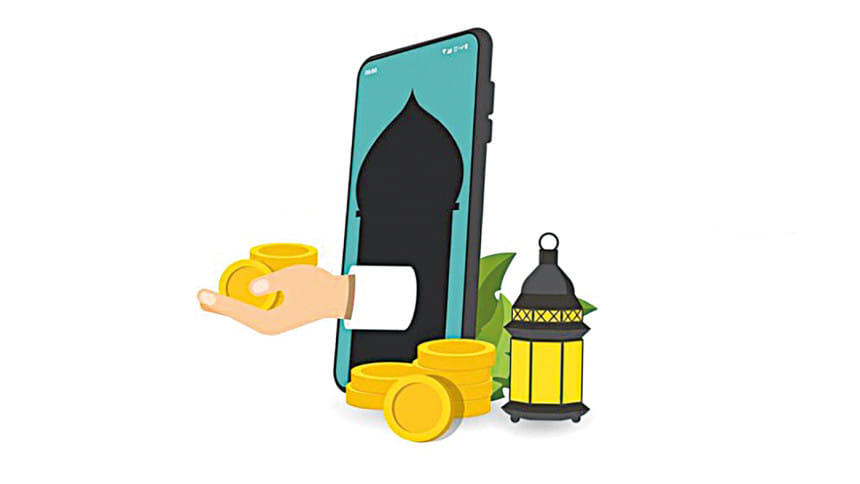Digital Zakat Faith Meets Fintech

The integration of faith and technology has revolutionized zakat, making charitable giving more efficient, transparent, and far-reaching. Digital platforms extend zakat beyond immediate communities, ensuring aid reaches those in need while preserving dignity and autonomy.
Professor Main Uddin from the Department of Banking & Insurance at the University of Dhaka highlights the importance of efficiency in digital zakat distribution. A well-maintained database of beneficiaries is essential, along with ensuring access to fintech solutions. Pre-informing recipients about distribution schedules and assessing how digital systems reduce corruption are key to enhancing transparency and accountability.
By issuing clear directives and minimizing bureaucratic hurdles, Bangladesh Bank can foster a seamless zakat distribution system, boosting public trust in digital payments.
The shift to digital zakat has also transformed the social and emotional aspects of giving. Muhammad Shakhawat Ullah, VP & Head of Cards at Al-Arafah Bank, notes that digital donations empower recipients by allowing them to choose how they use their funds. Unlike traditional in-kind contributions, digital zakat enables greater financial independence while adhering to Islamic principles.
Digital platforms broaden the reach of zakat, allowing donations from anywhere at any time. At Al-Arafah Bank, donors can contribute via card services, MFS (Islamic wallets), and internet banking. While zakat is given throughout the year, donations peak during Ramadan, when spiritual rewards are believed to be higher.
Additionally, digitization ensures discretion in charity. The confidentiality of online transactions aligns with Islamic teachings that emphasize humility in giving. This shift enhances both the security and dignity of zakat distribution.
Despite these benefits, challenges remain. Limited digital literacy and lack of fintech access among some underprivileged groups can hinder effective zakat distribution. Expanding financial inclusion and improving technological infrastructure are crucial for making digital zakat universally accessible.
A more structured regulatory framework and innovative fintech solutions can further streamline zakat transactions, ensuring efficiency and reliability. Stronger collaboration between banks, MFS providers, and regulators can drive the future of digital zakat in Bangladesh.
By embracing technology, zakat maintains its spiritual essence while adapting to modern financial practices. The transition to digital payments preserves the core values of zakat, ensuring a more inclusive, dignified, and impactful system of charitable giving.

 For all latest news, follow The Daily Star's Google News channel.
For all latest news, follow The Daily Star's Google News channel. 



Comments